Pitch Black 24 – Eurofighter aircraft defend territory from enemy attack
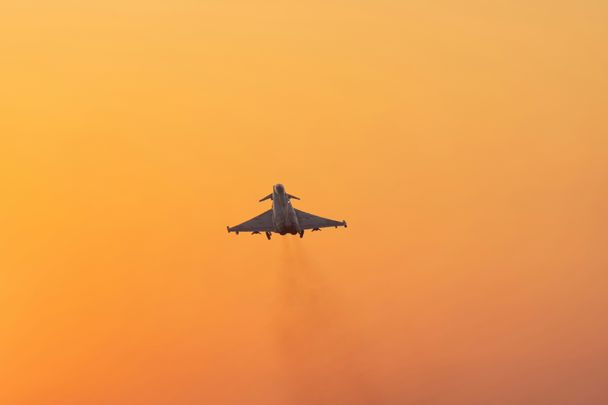
The sunset over Darwin Air Base in Australia’s Northern Territory is jaw-droppingly beautiful; when accented by a Eurofighter it leaves both locals and visitors alike speechless. On the runway, the fighters of the 20 nations participating in Pitch Black, a major biannual exercise organised by the Royal Australian Air Force (RAAF), are lining up.
Captain Fabian, a German Eurofighter pilot and commander of the detachment at Pitch Black, and Major Fernando, a Spanish Eurofighter pilot and chief of air operations in the exercise, accumulate more than 3,000 hours of flying time between them.
Maj Fernando explains: “The Spanish Air and Space Force has never done a deployment of this magnitude before and we have spent almost a year preparing everything. The pilots start practising in the simulator in Morón de la Frontera [air base of the Spanish Air and Space Army] scenarios that are exactly the same as the ones they are going to do here.”
He says, this way, when they arrive in Australia, they are more familiar to them. Once the exercise begins, they first fly with a lower tactical load to recognise the airspace and, from there, they take a building block approach, each time with more complex missions.
Objective: to eliminate the enemy threat
Each Pitch Black mission typically lasts about two days, between the planning phase, during which the roles of each squadron and platform are defined, and the execution phase - the flight itself, which lasts about two hours - and finally the analysis phase, during which conclusions are drawn.
Captain Fabian adds: “We are basically flying here, always the good guys against the bad guys. Blue against Red. And on the blue side, we fly both offensive counter air operations (OCAs) as well as defensive counter air operations (DCAs), operations with different content, where we make our contribution as the German Air Force with our Eurofighters.”.
The RAAF, as the organiser of Pitch Black, is in charge of setting the scene. The exercise, typically representing a scenario where a disputed region has been overrun by the red side - the bad guys - and the blue side has to take it back, with the help of Pitch Black forces.
“There are different operations every day,” explains the Spanish commander. “There are specific air-to-air operations, where we set up what are called CAPS; we have aircraft in the air and we protect a certain airspace. If any threat comes in, we can ‘shoot it down’ if they authorise us to do so, or intercept it.”
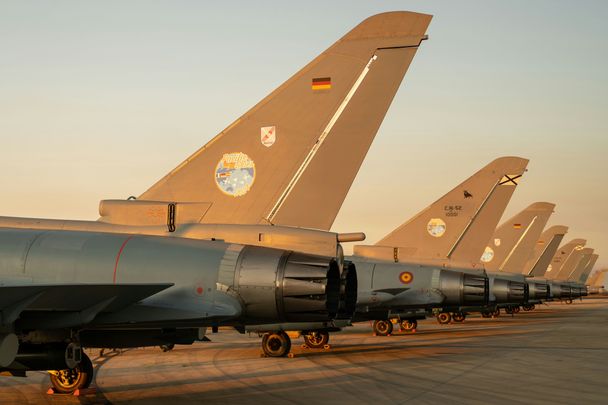
Eurofighter: the spearhead penetrating enemy defences
In offensive missions, the Spanish Eurofighters are usually tasked with air-to-air missions, clearing the air threat for other fighters to come in and engage targets on the ground.
“The Eurofighter has superior air-to-air and air-to-surface capabilities; its capabilities are still the tip of the spear,” says Fernando.
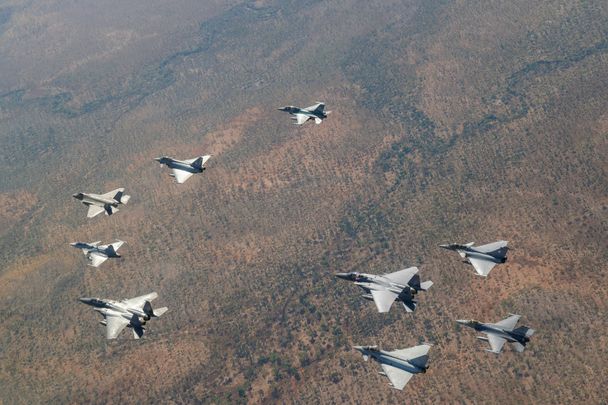
Interoperability, interoperability, interoperability
In the formations of these flights, up to 50 aircraft are accumulated, whether on day or night missions, which is impossible to train on European territory. Coordination between aircraft is particularly important.
“Interoperability means each nation’s air force is not just looking out for itself, but is trying to share procedures at the operational level, so that there is a common understanding of interrelated air operations and thus common benefits and advantages,” says the German pilot.
And Pitch Black provides a unique opportunity for Germany, France and Spain - the three FCAS countries who are participating in Pacific Skies deployment - to coordinate better. It is also an opportunity for them to do so with allied nations they do not normally work with, such as India, Indonesia, Japan, the Philippines, South Korea and Thailand, among others, who have different procedures and platforms that they have never been able to integrate or fight with.
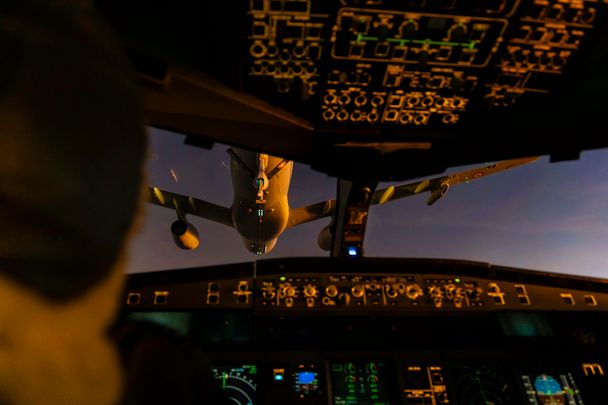
A330 MRTTs: Fuel to keep the Eurofighter flying
All pilots agree that Pitch Black’s airspace, which is similar in size to that of Germany and even has a restricted area for dropping real weaponry, is a real asset.
“With the amount of airspace we have here at Pitch Black, it is extremely important to maintain a high station time during each mission,” says the German captain. “And air-to-air refuelling is very important to us, so during the missions we almost always try to get close to a tanker to get another tank of fuel while we are still in the air, so we can stay on the mission longer.”
Keeping the fighters on task for longer and extending their range is the role of the A330 MRTTs from Australia, Singapore, France, the UK or the Multinational MRTT Unit, which are based in Amberley in eastern Australia, more than 3,000 kilometres away from Darwin.
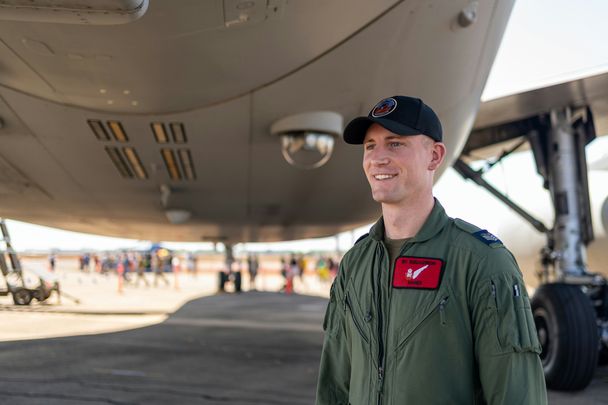
Handi, an A330 MRTT mission system operator from the British Royal Air Force, explains they have exchanged crews with Singapore, Australia and France to improve the way they work and see how they operate the aircraft.
“My role is to operate all of the refuelling equipment that allows [Eurofighter] Typhoons and other fast jets to refuel from us,” says Handi. “A key role for me is to maintain formation safety when the jets are flying in close formation. It can be a high risk situation but this allows us to ensure that the refuelling happens as safely as possible.”.
SSG (NS) Lim Pei Zhen, A330 MRTT aircrew specialist and air-refuelling operator from the Republic of Singapore Air Force, says “every aircraft has its own unique challenges, and, since we have various aircraft from different countries, it is very interesting and fun for me to come here to showcase our capability as a tanker”.
At nightfall, and after more than two hours of missions, the planes land in Darwin. Tomorrow, it will be time to analyse the mission and draw lessons learned. As the Romans used to say, ‘Si vis pacem, para bellum’, or ‘If you want peace, prepare for war’.



